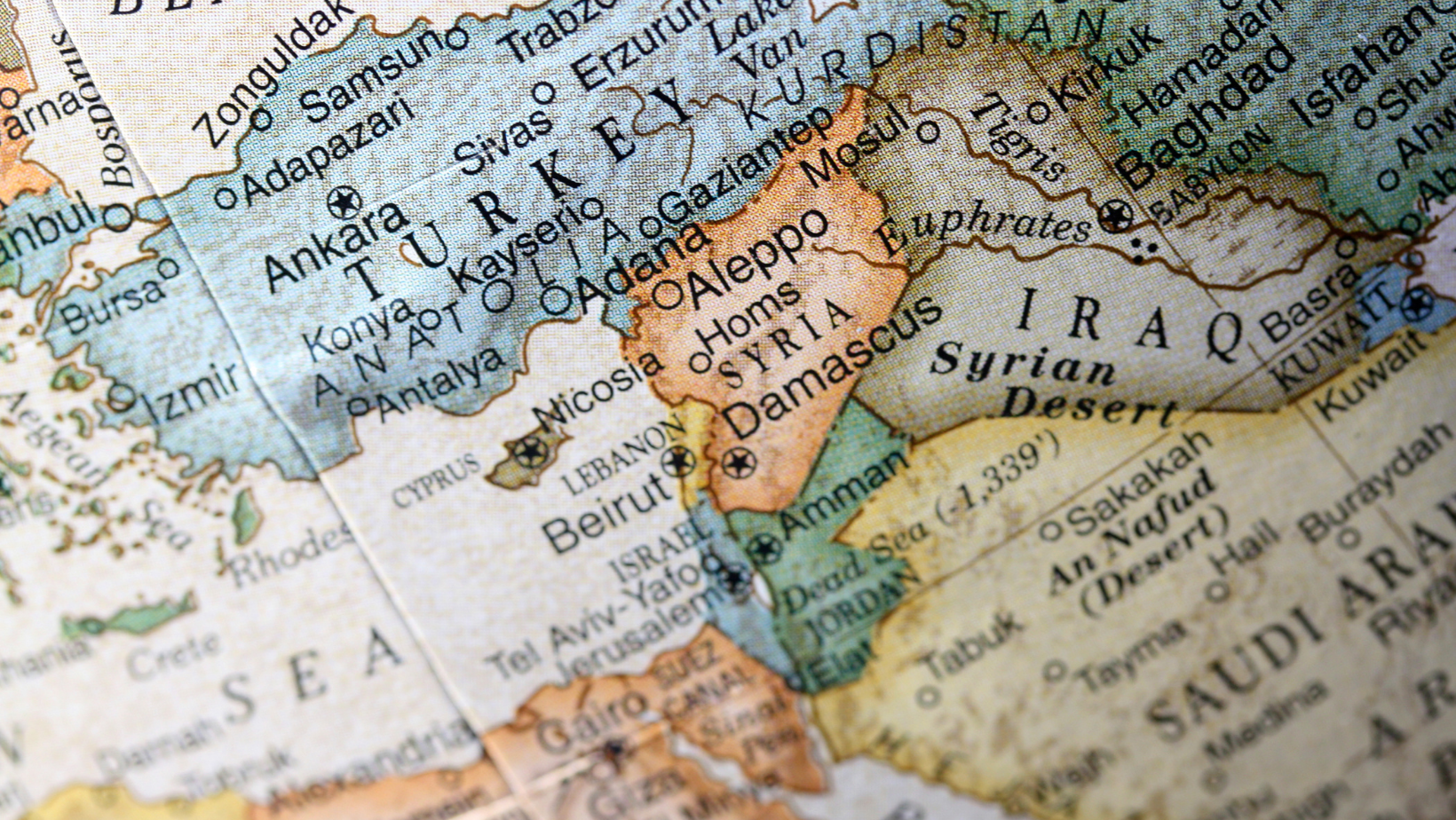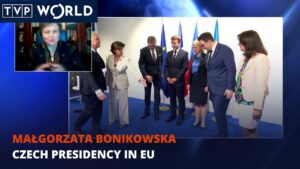
ISRAEL’S SECURITY AND THE GULF’S ENERGY INTERESTS
The Russian invasion of Ukraine has caused confusion in Israel and in the larger Middle East. Israel’s sympathies are clearly with Ukrainians and Israelis have rallied for them – sometimes in big numbers – and privately donated aid. Moreover, the Israeli government too has provided Ukraine with various form of humanitarian assistance, including field hospitals. However, there are still voices criticizing Israel for maintaining ties with Moscow, not supplying weapons and not sending the Iron Dome air defence system to Ukraine. The Israeli approach is multifaceted and is based on many serious considerations related to its external security as well as internal political factors. Other Middle East nations – taken by surprise – have chosen realpolitik, carefully balancing their strategic and energy interests.
On 2 March, 2022 Israel voted in favor of the UN General Assembly resolution condemning Russian invasion on Ukraine, and on 7 April it also backed the UN decision to suspend Moscow from the Human Rights Council. As regards the internal situation, there are about one million citizens who migrated from the former Soviet Union and settled in Israel. However, the Israeli public opinion as a whole seems to overwhelmingly support the Ukrainians. A recent Pew Research Centre survey has demonstrated that 79 percent of Israeli population supports Ukraine and 19 percent Russia. So it seems that the factor of Israelis with Russian origins happens to be low when it comes to the Israeli political debate. There are other, more critical issues shaping the Israeli approach to the Ukrainian war.
INTERNAL CONTEXT: POLITICAL CHAOS
In political terms, by the time the Ukrainian war started, the Israeli political system had already entered another political crisis. Finally, after months of intense internal wrangling, the coalition government led by Prime Minister Naftali Bennet collapsed and brought about the dissolution of the Knesset on 30 June. Foreign Minister Yair Lapid will serve as an interim Prime Minister till the new coalition government is formed. New elections – to be held on 1 November this year – will be the fifth in less than four years. This very fact illustrates the political circumstances in which the Israeli foreign policy has been made over the last six months. In such situations of internal political struggle, even those Israeli politicians who deal with foreign policy start to be inward-looking. It’s worth noting, that Israel as such in an inward-looking country as also its elites are. As a matter of fact, in a pre-election or election time foreign policy issues are not being discussed.
EXTERNAL SECURITY CONCERNS
On the other hand, Israel has not adopted an official policy on Ukraine for other reasons too. The key one appears to be expected implications for arrangements it has made with Moscow on Syria. Russia intervened in Syria in September 2015 to rescue its embattled dictator – President Bashar al-Assad. Back then, the Israelis had developed some kind of coordination and deconfliction mechanism there in order to avoid clashes with the Russians. In particular, what matters for Israel is activities of the powerful Lebanese militia Hezbollah which are backed by Iran and have been engaging strongly in providing military assistance, especially the fighting force for Assad in Syria. Moreover, what concerns Tel Aviv is a large stock of missiles that are in Hezbollah’s disposal. The arsenal is estimated to be over 130,000 units and all of them may be used against Israel. The problem is that even the famous Iron Dome might not be sufficient as a protecting shield against them. Therefore, the Israeli policy of systematically destroying Iranian weapon shipments and factories on Syrian territory is crucial for its strategic interests and for Israel’s survival. In Israel’s view, however, this can be hardly done without Moscow’s neutrality in that particular issue. This seems to be an overriding factor and because it looms so big, the Israeli leadership has sidelined other elements that need to be considered to determine its policies toward the Kremlin. Russia is likely to remain an important player in Syria and other Middle Eastern countries so for Israel it has become a strategic partner in addition to Washington, though of much lesser weight than the USA. In reality, however, Russia does not seem to have given Tel Aviv any assurances as for what is happening in Syria. Moscow is pursuing what it considers its own interests. Therefore, Tel Aviv may need probably to rethink its strategies, if the price of maintain ties with the Kremlin would mean alienating the USA.
GULF COUNTRIES: ‘SITTING ON THE FENCE’
The war in Ukraine has put the Middle Eastern countries in a very unpleasant position. Some of the Arab nations grouped in the Gulf Cooperation Council (GCC), in particular Saudi Arabia and the United Arab Emirates seem to be sitting on the fence between the USA and Russia. They do not want to be seen as backing either side. Instead, they have been trying to maintain as much neutrality as possible. President Biden has defined the conflict as a battle between Western democracies that are protecting their liberal values and the autocratic regimes. It is not easy for the Middle Eastern countries to place themselves in that sort of framework. Their political systems are based on their traditional and cultural circumstances and are different from Western democracies. But politically it is hardly tenable to stay aside in the Ukrainian conflict for a longer time. In July, President Biden visits the region and both sides wish to improve their relations that suffered from the consequences of the killing of a Saudi journalist Jamal Khashoggi and the war in Yemen.
It is likely that the Saudis will to some extent modify their narrative concerning the war in Ukraine. The prospect, however, that they align with the West is rather slim. There are two main obstacles, one concerning Iran and another one relating to energy issues. Politically, the main strategic problem from the GCC’s perspective is Syria. Washington has largely disengaged from the conflict there during Donald Trump’s term as the US President. Russia, meanwhile, has been building its position in Syria with military and naval bases. Even if Moscow and Tehran cooperate there, their long-term interests in the region are divergent. The realpolitik says that if Russia left Syria now, the country might become an open space for Iran which is the main adversary for UAE and Saudi Arabia. One of the solutions to deter Tehran is to forge new alliances – an idea which a decade ago was completely out of discussion. Now that the overall strategic situation has changed, the USA has been successful in persuading the Gulf countries to do so. This is probably why the UAE and Bahrain decided to normalize their ties with Israel and conclude the Abraham Accords on 15 September, 2020. In that context, there is also encouragement from the US government for a diplomatic rapprochement between Saudi Arabia and Tel Aviv.
When it comes to the crucial issue of energy, there have been two opposite reactions to the situation on the global markets created by the Ukrainian war. Qatar as a big producer and global LNG exporter is ready to enlarge the output of gas and delivering it to the European markets to stabilize them as much as possible. However, there are some pre-conditions to be met in this respect. The Qataris had signed many long-term contracts with Asian nations. What can be supplied to Europe is the spare gas. Moreover, the Qataris have demanded long term commitments on the part of the European Union. It complicates the EU’s Green Deal plans to cut emissions and transit to renewable energy sources.
On the other hand, Saudi Arabia and United Arab Emirates – the key actors in the OPEC bloc do not want to alienate Russia with which they have been working within the OPEC+ framework, launched in 2016. However, it seems that Saudi Arabia has recently struck a deal with Moscow to speed up production spikes, as agreed during the talks on 2 June. Close ties with Russia are a key for the Saudis to control the global oil output and keep high prices.
TURKEY’S “BALANCED” APPROACH
Turkey is a NATO member state but it is following its own strategic interests as it sees them. Ankara backed the UN General Assembly resolution calling for Russia to immediately end its military operation in Ukraine. It also has recognized the conflict as a war which allowed it to restrict the movement of Russia’s navy through the Turkish Straits, referring to the Montreux Convention of 1936. When it comes to defence issues, the Baykar – a private Turkish company has struck a deal with Kiev for delivery of Bayraktar TB2 drones to Ukraine.
On the other hand, Turkey has not joined the Western sanctions against Moscow. Instead, Ankara is openly raising a possibility to question the sovereignty of its NATO ally Greece over Aegean islands. The Turks have also voiced their plans to launch another military operation in Syria, despite reservations from both Washington and Moscow. The Kremlin is ready to tolerate Turkey being on the opposite side of the conflict in Syria because it hopes Ankara might switch its alliances in the future. President Erdogan may be using it as a bargaining chip to get concessions from Russia. He has already played similarly with the issue of NATO membership of Sweden and Finland. After threatening to veto their NATO aspirations, Ankara received some concessions from those Nordic nations concerning anti-terrorism cooperation and investments. In return, Turkey dropped its objections but subject to the full implementation of the deal. It may be also argued that the concessions Turkey has achieved are of lesser value than the damage Ankara has inflicted on itself as regards trust within the bloc. It puts a question mark on the rationality of Turkish policy in this respect.
Author: Bruno Surdel, PhD, analyst, Centre for International Relations
The text was, among others, based on an expert debate “War in Ukraine: the Middle East reaction?”, which took place on 28 June, 2022 as part of the “4 TAKES on the Middle EAST” series, in cooperation with ELNET-Poland and thanks to the support of the Konrad Adenauer Foundation.
[evc_interactive_banner type=”classic” custom_link=”url:https%3A%2F%2Fmastersandrobots.tech%2F|||”]




